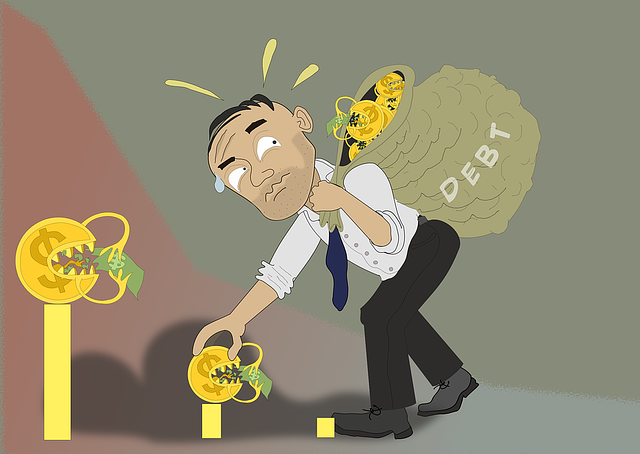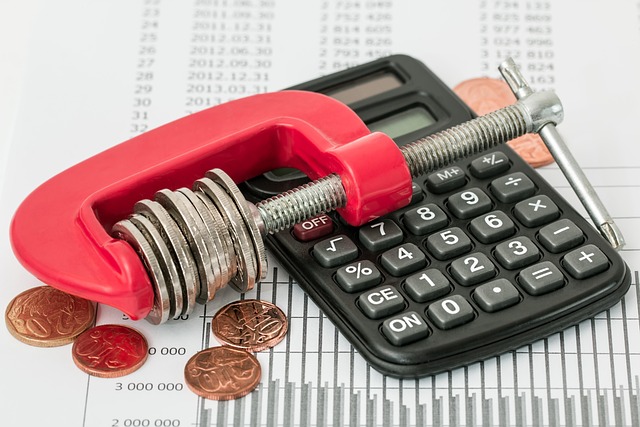Unsecured debt consolidation loans offer a flexible and risk-free way for individuals with bad credit to merge multiple high-interest debts into a single payment. These loans provide simplified terms, potentially lower interest rates, and negotiable repayment periods, making them an attractive option for effective debt management and improving credit scores. Lenders like SoFi, LendKey, and Credit Union Bank specialize in offering competitive rates and flexible terms with no collateral requirements. By comparing offers and prioritizing timely repayments, borrowers can improve their financial health and future lending prospects.
Struggling with multiple high-interest debts? Consider unsecured debt consolidation loans as a solution. This article guides you through understanding this financial tool, its numerous benefits, especially for those with bad credit scores. We’ve curated a list of top lenders offering such loans and provide insights into loan terms, repayment strategies, and responsible use to rebuild credit.
- Understanding Unsecured Debt Consolidation Loans
- Benefits of Consolidating High-Interest Debts
- Top Lenders for Bad Credit Scores
- Loan Terms and Repayment Strategies
- Building Credit Through Responsible Consolidation
Understanding Unsecured Debt Consolidation Loans

Unsecured debt consolidation loans are a popular option for individuals looking to streamline their multiple high-interest debts into a single, more manageable payment. Unlike secured loans that require collateral, unsecured loans offer flexibility with no assets at risk. This type of loan is ideal for those with bad credit, as it provides an opportunity to repair financial health without the added stress of potential asset loss.
When considering what is an unsecured consolidation loan, individuals should explore the benefits compared to traditional secured loans. Unsecured debt consolidation can simplify repayment terms and potentially lower interest rates. Moreover, negotiating terms on these loans, such as adjusting repayment periods or interest charges, can be a strategic move for borrowers. It’s essential to weigh the advantages of unsecured loans against their alternatives to determine if this approach aligns with personal financial goals, especially when asking, “Is unsecured debt consolidation better?”
Benefits of Consolidating High-Interest Debts

Consolidating high-interest debts through unsecured debt consolidation loans offers several significant advantages for individuals struggling with multiple loans and high-rate payments. One of the primary benefits is the opportunity to simplify financial management. By combining multiple debts into a single loan with a lower interest rate, borrowers can reduce their monthly payment burden and streamline their repayment process. This simplicity not only makes budgeting easier but also reduces the risk of missing payments due to confusion over multiple due dates.
Additionally, unsecured debt consolidation loans can help improve credit scores. When high-interest debts are consolidated, borrowers can focus on making consistent, on-time payments, which positively impacts their credit history. Moreover, a consolidated loan may provide more flexibility in terms of repayment schedules and amounts, allowing individuals to manage their finances more effectively and potentially fix medical debts with flexible unsecured loans, addressing a common challenge for those with bad credit.
Top Lenders for Bad Credit Scores

When exploring unsecured debt consolidation loans for bad credit, it’s essential to understand that your credit score doesn’t have to be a barrier to accessing financial relief. Several lenders specialize in offering these types of loans, catering specifically to individuals with lower credit ratings. Topping the list are renowned institutions like SoFi, LendKey, and Credit Union Bank. These lenders not only provide access to funds but also offer competitive interest rates and flexible repayment terms.
Choosing the right one involves considering your financial situation and goals. What are the advantages of an unsecured loan? Well, these loans don’t require collateral, offering a safety net during uncertain times. When should you consider this option? If you have multiple high-interest debts and want to simplify repayments or need funds for debt consolidation but lack viable assets for secured lending, an unsecured debt consolidation loan could be the way forward. Researching and comparing lenders is key; look beyond interest rates to find a provider that aligns with your needs.
Loan Terms and Repayment Strategies

When considering unsecured debt consolidation loans for bad credit, understanding loan terms and repayment strategies is crucial. These loans offer a flexible option for individuals looking to merge multiple debts into one manageable payment, potentially reducing financial stress with unsecured debt solutions. Unlike secured loans that require collateral, unsecured loans are based solely on your creditworthiness, making them accessible to those with less-than-perfect credit. Loan terms typically range from 12 to 60 months, with interest rates varying depending on your credit profile and the lender.
Repayment strategies for unsecured debt consolidation loans often involve fixed monthly payments, which can help create a consistent budget. Some lenders may also offer balloon payments or interest-only periods initially, but it’s essential to carefully consider these options as they could extend the overall loan term and increase the total cost of repayment. Comparing different offers from various lenders is key to finding the best terms tailored to your financial situation. Additionally, focusing on timely repayments can help improve your credit score over time, making it easier to access better lending opportunities in the future.
Building Credit Through Responsible Consolidation

Building credit through responsible debt consolidation can be a powerful tool for individuals with bad credit looking to improve their financial standing. Unsecured debt consolidation loans offer a unique opportunity to merge multiple high-interest debts into a single, more manageable payment. By consolidating, you not only simplify your billing process but also potentially reduce the overall interest you pay over time. This responsible management of debt demonstrates timely payments and can positively impact your credit score over the long term.
Compared to secured loans that require collateral, unsecured debt consolidation loans provide flexibility as they do not tie up assets. This means individuals can consolidate their debts without risking the loss of valuable possessions. Furthermore, getting approved for an unsecured loan is often more accessible since it’s based on creditworthiness rather than asset ownership. As a result, debt consolidation without impacting savings becomes a viable option for those seeking to regain control of their finances and build a stronger credit profile.
Unsecured debt consolidation loans can be a powerful tool for managing high-interest debts, even with a low credit score. By understanding the benefits and choosing reputable lenders offering flexible terms, individuals can take control of their financial situation. Responsible repayment strategies, combined with consistent credit building practices, ensure long-term financial health. Consolidating debts is not just about alleviating immediate stress; it’s a step towards a more secure and stable financial future.
